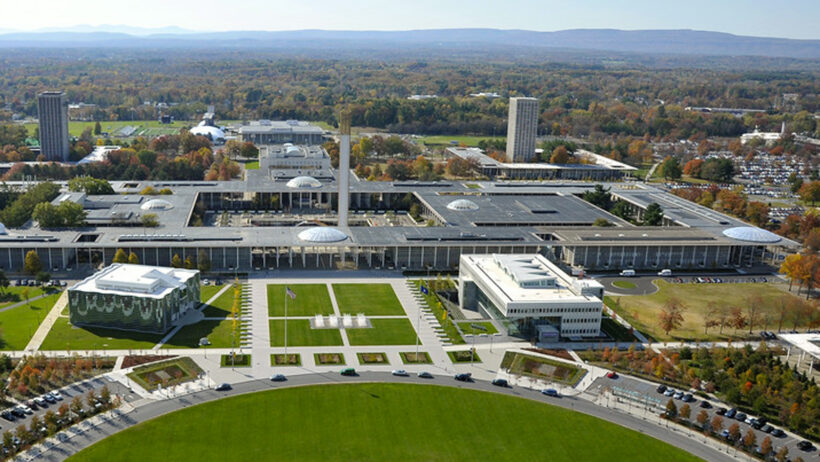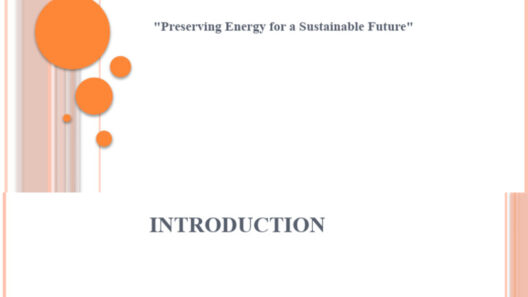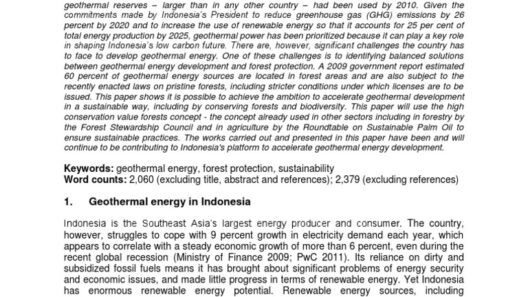Energy conservation is often likened to the gentle art of pruning a tree. Just as a skilled gardener meticulously trims away superfluous branches to foster healthier growth, humanity must learn to eliminate unnecessary energy consumption to nurture the planet’s vitality. In this age of burgeoning technological advancement, the concept of energy conservation becomes not merely a noble pursuit but a crucial strategy in mitigating the repercussions of climate change. This exploration of energy conservation reveals not only its environmental benefits but also the intricate interconnections that bind our choices to the health of our world.
To grasp the importance of energy conservation, we must first understand the predilection of modern society towards energy consumption. Daily, individuals and industries consume staggering amounts of electricity, fossil fuels, and other energy sources. This insatiable hunger contributes to the acceleration of climate change, leading to an alarming rise in global temperatures, extreme weather events, and the degradation of ecosystems. Each wasted watt is akin to a silent cry that resonates throughout the environment, amplifying carbon footprints and diminishing the Earth’s resources.
Energy conservation serves as a bulwark against this tide of environmental degradation. By reducing energy consumption, we directly reduce greenhouse gas emissions, which are the primary drivers of climate change. For instance, when we dim the lights or unplug devices not in use, we are participating in a critical act of environmental stewardship. It is not merely an aesthetic choice; rather, it is a call to arms, a subtle yet powerful gesture that collectively can yield substantial benefits. Imagine thousands of individuals making small changes—a dimmer switch here, a programmable thermostat there. Together, these seemingly insignificant adjustments coalesce into a formidable force for environmental good.
Furthermore, energy conservation extends beyond personal sacrifice—it encapsulates the essence of innovation. Industries that commit to energy-efficient practices may harness technological advances that not only benefit their operations but also the environment. For example, the advent of energy-efficient appliances and smart technologies serve dual purposes. Not only do they decrease energy consumption, but they also reduce operational costs, creating a win-win scenario for businesses and the environment alike.
The appeal of energy conservation lies in its multifaceted nature. It can be viewed through the lens of economics, where reducing energy bills fosters a more sustainable financial future for families and businesses. Additionally, societal health improves as cleaner air and water emerge from less pollution. When individuals conserve energy, they inadvertently contribute to the preservation of wildlife habitats, lowering the chances of extinction for countless species and assisting in the maintenance of biodiversity. In essence, energy conservation is akin to a symbiotic relationship, where the benefits returned to humanity thrive on the health of the planet.
An intriguing aspect of energy conservation is its alignment with social equity. Energy conservation initiatives often permeate various socio-economic strata, fostering community engagement and resilience. Programs promoting energy-efficient retrofitting in lower-income neighborhoods not only uplift living conditions but also showcase the power of collective action. In essence, energy conservation has the potential to forge unlikely alliances; diverse communities can unite under the common goal of a sustainable future. Further, the social fabric strengthens when shared initiatives evoke pride in collective achievements.
The metaphor of energy conservation resonates on another level; consider the world’s energy consumption as a vast reservoir. When we conserve energy, we extend the lifespan of this reservoir, allowing for greater stability and sustainability. This reservoir of energy comprises finite resources, and our actions dictate the pace at which it depletes. By embracing energy conservation, we become stewards of a shared resource, ensuring its availability for generations to come.
In addition to the tangible benefits, energy conservation embodies a philosophical shift—an embracing of minimalism and mindfulness. Each moment spent considering energy consumption is akin to a breath of fresh air in a polluted landscape. This shift enhances our awareness, prompting us to contemplate our impact on the world. It encourages individuals to redefine their relationship with energy—not merely as a commodity but as an integral component of life itself. In doing so, we are beckoned to partake in a cultural renaissance that prioritizes sustainability over excess, harmony over discord.
No examination of energy conservation would be complete without acknowledgment of its role in shaping policies and governance. As advocacy for environmental protection intensifies, policymakers are increasingly called upon to promote energy-efficient practices at both national and local levels. Legislation aimed at incentivizing renewable energy use and implementing stringent conservation mandates is essential. This comprehensive policy framework serves to immortalize energy conservation as a societal norm rather than an afterthought.
In conclusion, energy conservation emerges as a multifarious concept, intricately interwoven with the fate of our planet. Just as pruning stimulates robust growth in a tree, conscientious energy use cultivates a sustainable future for the Earth. By embracing energy conservation, we not only mitigate climate change but also weave a narrative of resilience and hope. The steps we take today—whether small or grand—can sow seeds of progress that blossom into a healthier, more vibrant world tomorrow. The power rests in our hands; it is time to conserve before the branch we cling to becomes too fragile to support us.







